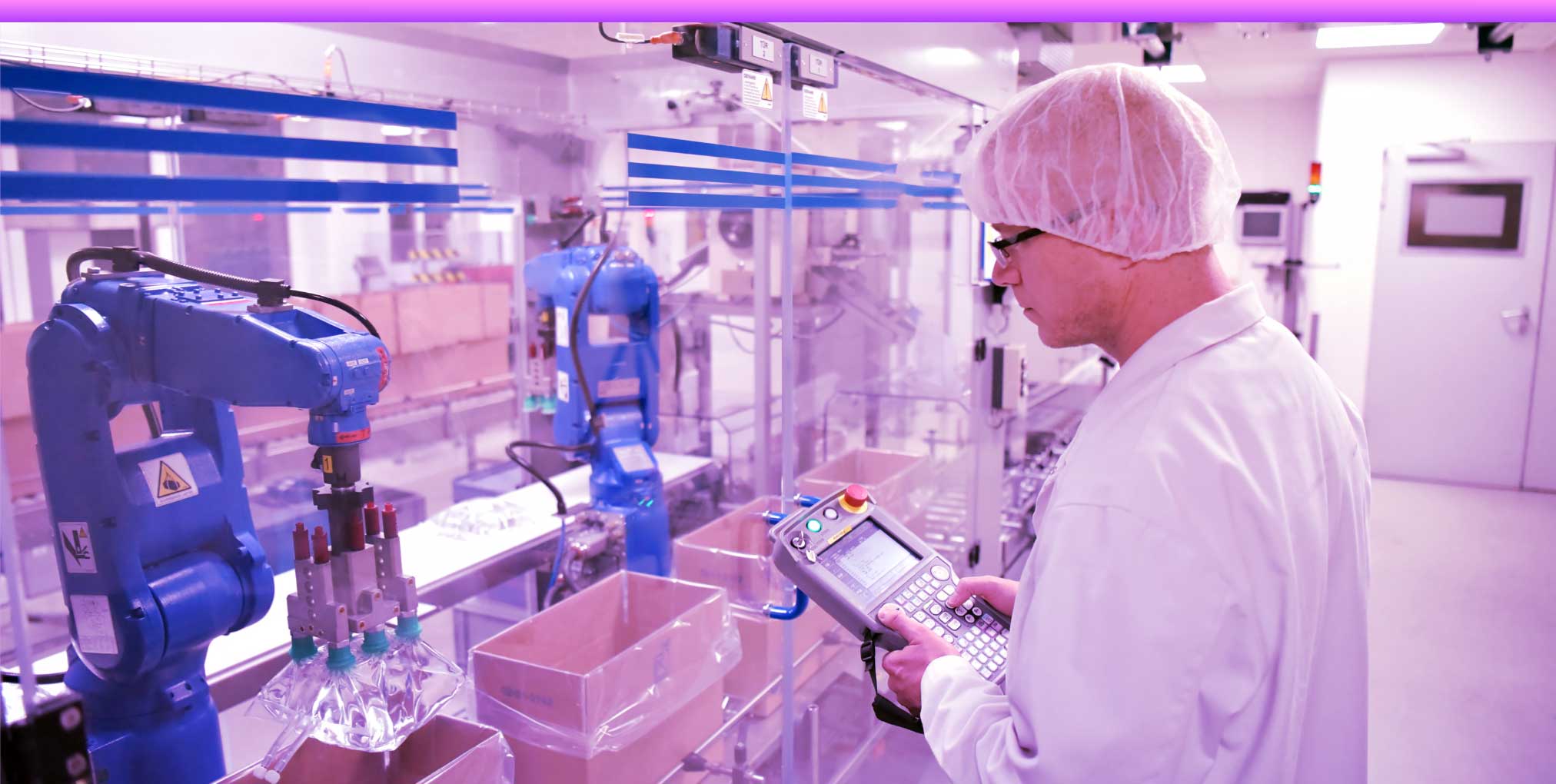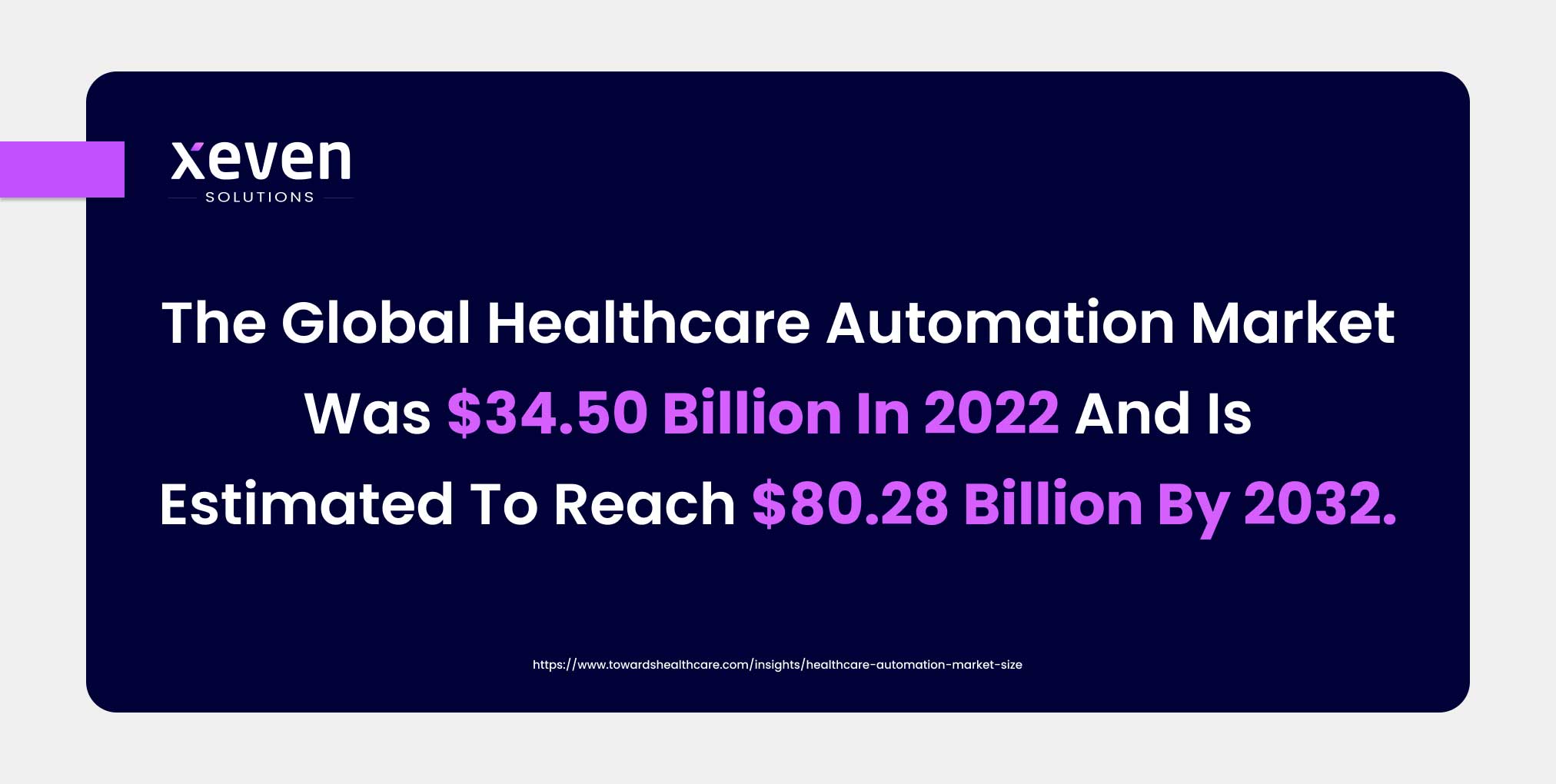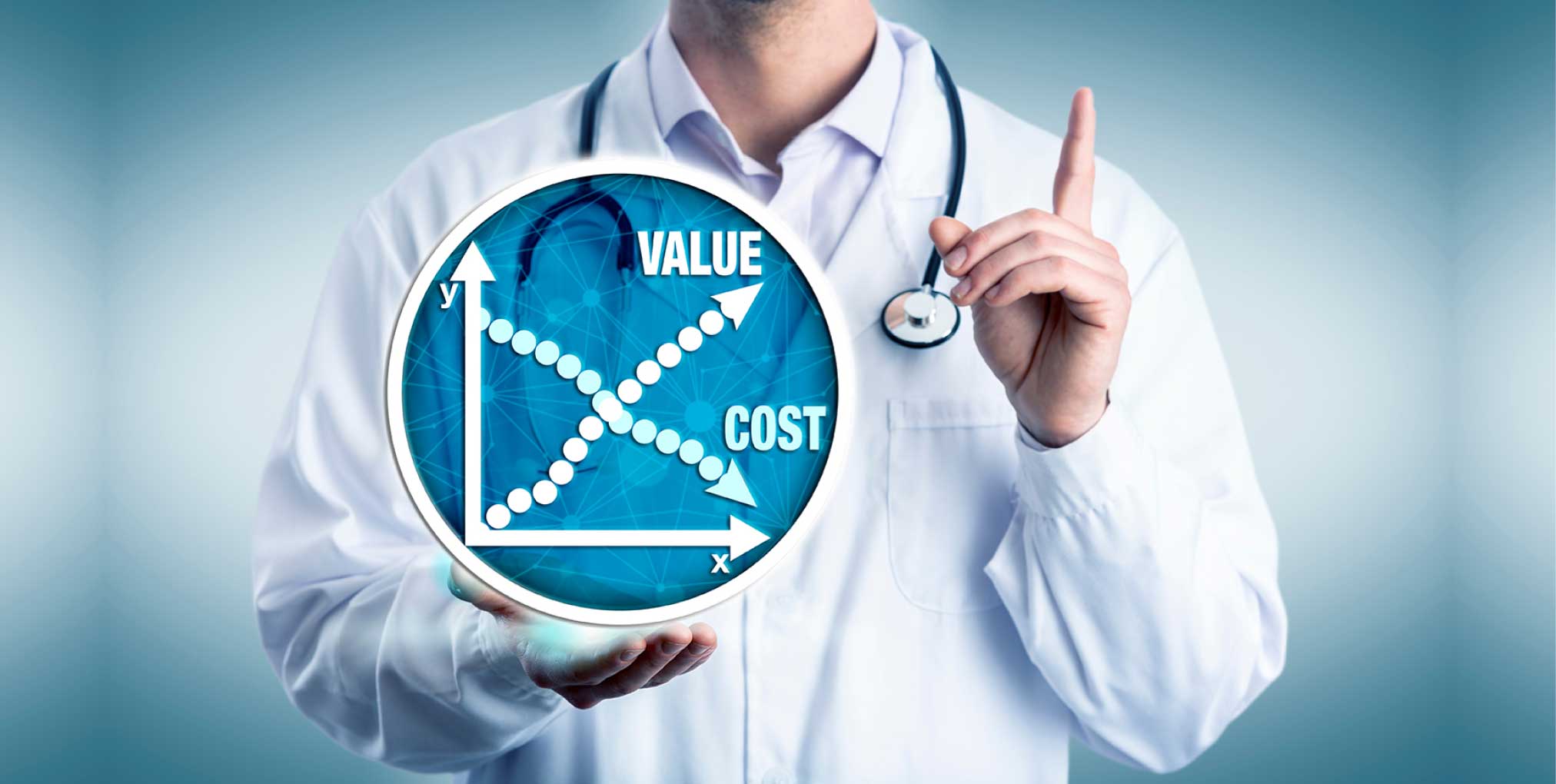

October 18, 2024
Automation has touched nearly every industry, and healthcare is no exception. Integrating automation in healthcare processes rapidly transforms how hospitals, clinics, and other medical institutions operate. With the increasing demand for quality care and the growing complexity of administrative tasks, adopting automation in healthcare is becoming a necessity.
Automation enables better resource management, improves patient care, and improves both clinical and non-clinical workflows. According to the survey by Towards Healthcare, The global healthcare automation market was valued at USD 34.50 billion in 2022. It is estimated to become a USD 80.28 billion market by 2032 and is projected to grow at 9.3% CAGR. The artificial intelligence segment by technology accounted for the largest 42.6% market share.

But what exactly are the benefits, and why should healthcare providers consider automating their systems? In this blog, we will explore the top seven benefits of automation in healthcare, highlighting how it can change the industry for the better.
Over the years, healthcare has grown far beyond the simple doctor-patient interaction. Today, healthcare professionals are inundated with responsibilities such as maintaining electronic health records (EHRs), billing, scheduling, and even managing supply chains.
On top of that, they must keep up with the rising demand for personalized, efficient care. This is where automation comes in, offering a solution that reduces manual tasks, improves efficiency, and allows healthcare providers to focus more on their patients.
Automation in healthcare is not just about the technology; it’s about creating a more sustainable healthcare system, where time-consuming tasks are handled by machines, enabling human workers to concentrate on caring for patients.

One of the most immediate benefits of automation in healthcare is the enhancement of administrative tasks. Processes such as appointment scheduling, patient check-ins, billing, and medical coding can be automated, reducing the time and effort required from human staff. Healthcare providers often spend a large portion of their day dealing with paperwork and managing the business side of their practice.
For example, appointment scheduling systems powered by automation can automatically send reminders to patients, reducing no-shows and improving the clinic’s overall efficiency. Additionally, automated billing systems can ensure that medical codes are accurate and insurance claims are processed faster, leading to quicker reimbursements and fewer financial discrepancies.
Automation in healthcare doesn’t just benefit healthcare professionals, it also improves the patient experience. By automating repetitive tasks, healthcare providers can focus more on delivering high-quality, personalized care. For example, automated systems can improve the process of patient registration and make it easier for patients to access their medical records, make appointments, and receive notifications about upcoming check-ups or test results.
Moreover, automation helps reduce patient wait times. When administrative tasks such as patient registration and insurance verification are automated, patients spend less time in waiting rooms and more time with their healthcare providers. This leads to higher levels of patient satisfaction and loyalty, as they receive quicker and more efficient service.
Medical errors are a significant concern in healthcare. From medication mistakes to incorrect diagnoses, human error can have serious consequences for patients. Automation helps minimize these errors by ensuring data entry, medication administration, and diagnosis accuracy. Automated systems can flag potential issues, such as drug interactions or incorrect dosages before they reach the patient.
For example, automated drug dispensing systems in hospitals can track medication orders and ensure patients receive the correct medications at the right times. These systems can also cross-check patient records for allergies and other contraindications, significantly reducing the risk of adverse drug events.
In diagnostics, artificial intelligence and machine learning technologies are being used to analyze medical images, detect patterns, and provide more accurate diagnoses. While AI isn’t meant to replace human doctors, it can serve as an additional layer of analysis to catch errors that might otherwise go unnoticed.

One of the most compelling reasons for adopting automation in healthcare is the potential for cost savings. By automating tasks that were previously done manually, healthcare organizations can reduce labor costs, cut down on administrative expenses, and operate more efficiently.
Automation reduces the need for excessive paperwork, minimizes time spent on administrative tasks, and decreases the chances of costly errors. Additionally, automation can help optimize the use of resources such as staff, equipment, and supplies, ensuring that these resources are utilized more efficiently.
For example, by automating supply chain management, hospitals can better track inventory levels and avoid overstocking or running out of critical supplies. This saves money and also ensures that healthcare providers have the tools they need to deliver care effectively.
The amount of data generated in healthcare is staggering, and managing this data can be a daunting task. Automation can streamline the process of collecting, storing, and analyzing healthcare data, making it easier for healthcare providers to access and use the information they need.
Automated systems can organize patient records, lab results, and treatment histories, providing healthcare professionals with a complete view of the patient’s medical history. This leads to better decision-making and more personalized treatment plans.
Moreover, automation can assist in data analysis, helping healthcare providers identify trends, patterns, and potential health risks. For example, predictive analytics powered by AI can analyze patient data to predict the likelihood of certain health conditions, allowing for earlier intervention and more proactive care.
In the healthcare industry, compliance with regulations such as the Health Insurance Portability and Accountability Act (HIPAA) is important. Automation can help ensure that healthcare providers remain compliant by automating processes such as data storage, access control, and audit logging.
Automated systems can track and monitor who has accessed patient records, ensuring that only authorized personnel have access to sensitive information. Additionally, these systems can automatically generate reports for regulatory audits, saving time and reducing the risk of non-compliance.
Automation also enhances data security by reducing the risk of human error, such as accidentally sharing patient information or misplacing sensitive documents. Automated encryption and backup systems can protect patient data from breaches and ensure that it is securely stored.

Healthcare professionals, particularly nurses and doctors, are often overworked and overwhelmed by the sheer volume of tasks they need to manage daily. Automation helps reduce their workload by taking over repetitive, low-value tasks, allowing healthcare workers to focus on patient care and more complex duties.
For example, automated staff scheduling systems can create optimal shift patterns that reduce burnout and ensure enough staff members are on hand to meet patient needs. This leads to better staff satisfaction and retention, which in turn improves the quality of care provided to patients.
Furthermore, automation can facilitate continuous professional development by providing automated training modules and tracking staff certifications. This ensures that healthcare workers are always up-to-date with the latest protocols and best practices, improving the overall quality of care.
Automation in healthcare is a present-day reality transforming how healthcare providers deliver care. By automating administrative tasks, improving patient experience, reducing human error, and saving costs, healthcare providers can create a more efficient, accurate, and patient-centered system.
As automation technologies evolve, their role in healthcare will only become more prominent. From better data management to enhanced compliance and security, automation has the potential to address many of the challenges facing healthcare today. The future of healthcare lies in the smart integration of technology, and automation is leading the charge.